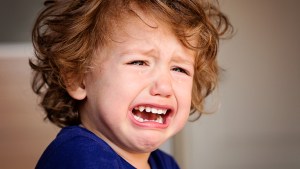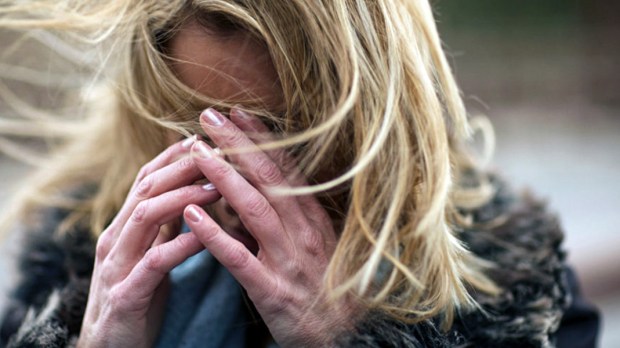You’ve had a stressful week. So you get on your comfiest pajamas, grab a to-go order of your favorite food, and turn on the television. You search for a sad movie to watch. Then you make sure the box of tissues is handy, grab a soft blanket, and settle in for a nice long cry. After the movie ends and you’ve dried your tears, you feel tired, but calm. It’s pretty much the textbook definition of what we like to call “a good cry.”
I’m no stranger to a good cry. But that little oxymoron of a phrase brings up a larger question for me, too: Why does it feel good to cry sometimes? And if it feels right to cry in some scenarios, why do may of us feel uncomfortable with our tears once we’re off the couch, and out in the real world? Why do we apologize for crying in public? It leaves me feeling that tears caused by sad movie — when we cry for others — are okay, but personal tears that are born from emotional triggers in everyday life are something to be ashamed of … So are those bad cries (if there is such a thing)?
In order to find out the answers to these questions, I did a little digging.
A sign of strength
The first problem is that in much of society today, we think tears denote weakness. Probably because tears can signal to others that you’re in need of help or support. Often, we immediately associate crying with children, which may strengthen the notion that crying is for the vulnerable and childish. (Lots of people cheered when new mom Tess Holiday, emotionally and physically exhausted, had the courage to post a photo of herself in tears on Instagram.)
But the opposite is actually true: crying is a sign that we’re emotionally mature and able to process our feelings correctly. Plus, scientific research provides evidence that tears aren’t just for show or to send out a distress signal — they can have a cathartic affect.
Erica Martinez, who works as a clinical psychologist and specializes in helping millennials get unstuck in love, work, and life, helps explain this complicated issue: “Some people were trained to hold back the tears since childhood (hearing ‘big girls don’t cry’ and such), but that becomes an unhealthy and incongruent response.” So automatically saying “I’m sorry” when you cry, like many of us do when we feel tears coming on in public, is a type of learned reflex. Maybe you were shamed by authority figures when you cried earlier in life, by the camp counselor or the school teacher who told you to stop crying, “grow up,” or “toughen up.” And, even if we don’t realize it, we can carry those words with us into adulthood.
Martinez goes on to say: “It’s no wonder they feel empty, lack joy, and are having trouble with relationships: they can’t emote! Therapy can loosen all those blocks.”
Tears can speak louder than words
I can attest to that truth. As a teenager and young adult, I rarely cried. It was as if something held me back from accessing my deepest emotions. In my late 20s, I began experiencing panic attacks and depression, which led me to seek counseling. Suddenly, long pent-up tears began to flow. (I even worried that my eyes would never stop “leaking.”) At first, I was embarrassed. However, the more I cried, the better I felt.
Martinez has observed many similar stories to mine while treating others: “Many times clients are hesitant to cry in a session, which leads to a conversation about what crying means to them and the past messages they associate with it. Crying allows people to physically release feelings which are difficult to articulate verbally. The people who break down take ownership of their emotions. They permit themselves to feel, and they honor their feelings.” That might lead to not just a good cry, but a productive one.
Good cry vs. bad cry
There is such a thing, however, as bad crying. For instance, the phrase “crocodile tears” refers to an insincere expression of sorrow. If we get in the habit of using tears in order to gain something we want, we’ll lose in the long run. Cautions Martinez, “Crying to manipulate circumstances in your favor might work at first, but others will eventually realize they’re being manipulated, and the relationship will suffer.”
Instead of being hypocritical or passive-aggressive, mature people are authentic. They allow themselves to experience the full spectrum of human emotions. Growing up emotionally means listening to our feelings, as well as empathizing with how others feel.
Over several years, my counselors, friend and family members — each of them a gift from above — walked alongside me on my journey, and allowed me to heal. Along the way, my capacity for sadness increased, but so did my capacity for joy. I discovered the truth of a biblical paradox … brokenness can lead to wholeness, when we give our pain an outlet and allow God to enter into the equation.

Read more:
The best thing you can do for a crying baby

